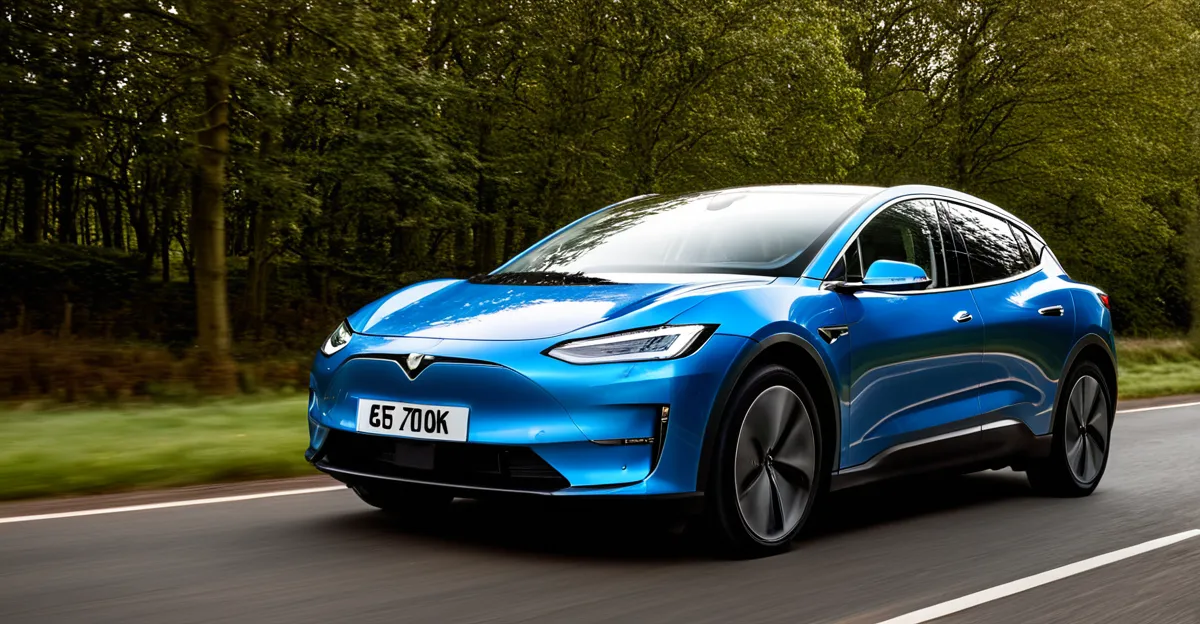Factors Accelerating Electric Car Adoption in the UK
The electric car adoption UK landscape has undergone significant transformation, marked by a surge in sales data showcasing a rising market share for electric vehicles (EVs). Recent figures reveal consistent growth in the proportion of EVs purchased annually, indicating a robust shift from traditional petrol and diesel cars toward more sustainable alternatives. This trend highlights a clear consumer preference change where environmental concerns and cost efficiency drive buying behaviour.
Analyzing EV market trends, it is evident that buyers are increasingly considering electric vehicles as practical and desirable options. This shift is supported by expanding model availability, with key automotive brands ramping up their investments in EV production. Manufacturers such as Jaguar, Nissan, and Volkswagen have introduced multiple new electric models, broadening consumer choice and accelerating electric vehicle growth. These brands are not only enhancing their EV portfolios but also investing in advanced technology to improve vehicle range and performance, which addresses previous concerns about electric cars.
Also to see : How is the UK addressing automotive industry challenges?
Consumer enthusiasm for electric vehicles also benefits from improved public awareness and growing infrastructure support, reinforcing the upward trajectory of electric car adoption UK. With each new model release and strategic market participation by automotive leaders, the appeal and accessibility of EVs continue to strengthen, propelling momentum for the UK’s shift toward an electrified future.
Impact of UK Government Policies and Incentives
Government action plays a crucial role in accelerating electric car adoption UK by providing direct financial support and creating a favourable environment for buyers. The UK government EV incentives include grants that significantly reduce the upfront cost of purchasing electric vehicles. These electric vehicle grants target both private consumers and businesses, making EV ownership more accessible and attractive. Additionally, tax advantages, such as reduced Vehicle Excise Duty and exemptions from congestion charges, offer ongoing savings that further incentivise the shift toward electric cars.
Topic to read : What are the opportunities for UK automotive startups in the global market?
Clean air zones and stricter emissions regulations have a pronounced effect on consumer choices. With many UK cities implementing low emission zones, drivers face penalties when operating petrol or diesel vehicles in these areas. This regulatory pressure nudges consumers toward EVs as a cleaner alternative that avoids fines and restrictions, reinforcing demand for electric models.
Moreover, national and local investments in the EV charging infrastructure are pivotal. Expanding the number of public charging points addresses a key adoption barrier by improving convenience and alleviating range concerns. These infrastructure developments, supported by government funding and partnerships, make owning and operating an electric car UK-wide more practical. By combining financial incentives with environmental policies and infrastructure growth, the government’s multifaceted approach effectively accelerates electric vehicle growth across the country.
Economic and Environmental Benefits of EV Ownership
Electric vehicle ownership offers substantial EV cost savings by reducing running and maintenance expenses compared to petrol or diesel cars. Electric motors have fewer moving parts, lowering the frequency and cost of servicing. Additionally, electricity as a fuel tends to be cheaper per mile, contributing to ongoing savings for drivers. Over the lifespan of the vehicle, these factors combine to create an attractive total cost of ownership, making benefits of electric vehicles financially compelling beyond initial purchase price.
Regarding environmental impact, electric cars significantly decrease greenhouse gas emissions, helping to reduce the overall carbon footprint. Unlike conventional vehicles, EVs produce no tailpipe emissions, leading to improved urban air quality and reduced pollution-related health risks. This environmental advantage is a critical factor driving electric car adoption UK, aligning with growing public and governmental focus on sustainability.
Furthermore, the positive cycle of electric vehicle growth strengthens these benefits. As more EVs enter the market, the reduction in city emissions becomes more noticeable, reinforcing consumer motivation to choose electric. These combined economic and environmental benefits underscore why electric vehicles are increasingly preferred and supported across the UK.
Advances in Electric Vehicle Technology
The pace of electric vehicle growth is closely linked to EV battery technology improvements, which directly impact the electric car range and ownership experience. Recent advances have enhanced battery energy density and durability, significantly extending the distance an electric car can travel on a single charge. This progress addresses a major barrier known as “range anxiety,” reassuring potential buyers who were previously hesitant due to concerns about frequent recharging.
In addition, the proliferation of rapid charging UK networks has transformed convenience for EV drivers. High-speed charging stations now populate urban and rural areas alike, reducing charging times from hours to under 30 minutes in many cases. This development amplifies electric car adoption UK-wide by making longer journeys more feasible and daily use more practical.
Modern electric vehicles also integrate smart technology and digital features that enhance user experience and overall efficiency. Innovations such as predictive route planning, over-the-air software updates, and vehicle-to-grid connectivity enable smarter energy use and personalized driving experiences. These technological strides bolster consumer confidence and appeal, further propelling electric vehicle growth across the UK.
Consumer Attitudes and Adoption Barriers
Consumer perception plays a pivotal role in electric car adoption UK as public trust and familiarity with EVs influence purchasing decisions. Although awareness of electric vehicle growth has increased, some buyers remain cautious due to concerns about affordability, charging accessibility, and vehicle reliability. These factors represent key electric car adoption barriers that still temper market expansion despite positive EV market trends.
Charging infrastructure, while improving, is often cited as a critical obstacle. Many potential EV buyers worry about the convenience of finding reliable charging points, particularly outside urban areas. This concern creates hesitation, especially for those without private parking where home charging is impractical. Furthermore, the initial purchase price of electric vehicles, although decreasing, remains higher than comparable petrol or diesel cars, challenging budget-conscious consumers and slowing overall adoption rates.
Manufacturers and policymakers actively address these barriers through education and financial measures. Car brands increasingly highlight the long-term savings and environmental benefits to reshape consumer attitudes. Simultaneously, government initiatives target affordability through subsidies and expand charging networks to increase accessibility. These coordinated efforts gradually build consumer confidence, fostering greater acceptance and accelerating electric vehicle growth across the UK market.
Future Outlook for Electric Cars in the UK Auto Industry
The future of electric vehicles UK appears robust, with strong EV market forecasts projecting continued and accelerated growth well into the next decade. Industry analysts predict that by 2030, electric cars will dominate new vehicle sales, driven by a combination of technological innovations, policy mandates, and shifting consumer preferences.
A critical element shaping the UK auto industry trends is the government’s planned ban on the sale of new petrol and diesel cars by 2030. This regulation creates a clear deadline that incentivizes manufacturers to prioritize electric vehicle development and expand their EV lineups. The impending ban also encourages infrastructure enhancement and stimulates market competition to meet rising demand.
Experts foresee a transformative shift toward next-generation mobility solutions beyond just cars, including electric buses, vans, and shared mobility platforms. Innovations in battery technology, vehicle software, and charging networks will further support this progression, making electric vehicles more accessible and attractive. This dynamic landscape ensures that the electric vehicle growth trajectory will not only continue but intensify, positioning the UK as a leader in sustainable transportation development.


